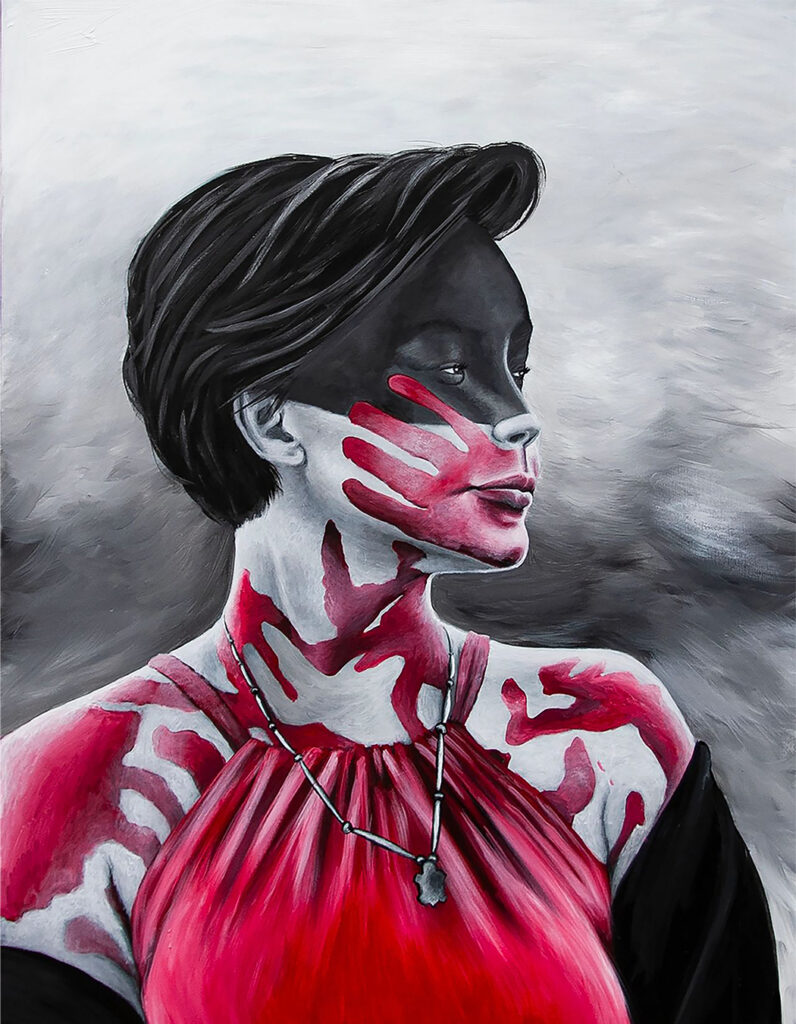On July 5, 2004, five-year-old Tamra Jewel Keepness went missing in Regina, Saskatchewan. You’ve probably never heard of her, because she’s just one of many indigenous women who have been murdered or vanished in Canada and the United States. Unlike the media frenzy over the disappearance of Gabby Petito, the plight of indigenous women has been largely invisible.

This month’s cover by Massachusetts artist Nayana LaFond portrays Shayla Sayer-Brabant, who painted the red hand over her face to call attention to the issue. Shayla grew up in Regina, and was the same age as Tamra.
“It really hit home with me,” Shayla said. “Missing and murdered indigenous women’s cases not only don’t get the same kind of media attention, but they’re handled so poorly that they don’t have a chance to stand up in court to get the justice that these women need.”
According to Native Women’s Wilderness, “as of 2016, the National Crime Information Center has reported 5,712 cases of missing American Indian and Alaska Native women and girls.” (https://www.nativewomenswilderness.org/mmiw)
“As an indigenous woman, I grew up hearing about these types of stories,” Shayla said. “I grew up with my parents telling me, ‘Don’t be a stereotype. There are people who will look at you and think you’re less than. They’ll try to take advantage of you.’
“For well over 100 years, indigenous women have been raped, they’ve been taken, they’ve been used for sex trafficking and there has been very little media attention, or community action outside the indigenous community. Greater society is just coming to terms with it.”
The red handprint over the mouth has come to be the symbol for the #MMIW (Missing and Murdered Indigenous Women) movement, but for Shayla that wasn’t enough.
“I put more red hand prints on my shoulders to represent those women and girls who aren’t being remembered today,” she said. “Their memory is fading. To this day, if I ever walk out at night, I hide behind cars and bushes if another car drives by. I have an alarm. I’ve tried keys between the fingers, but that also hurts your hand. These are the things I do as an indigenous woman in colonial society to stay safe and stay alive.”
For more information, search #MMIW and #NoMoreStolenSisters.